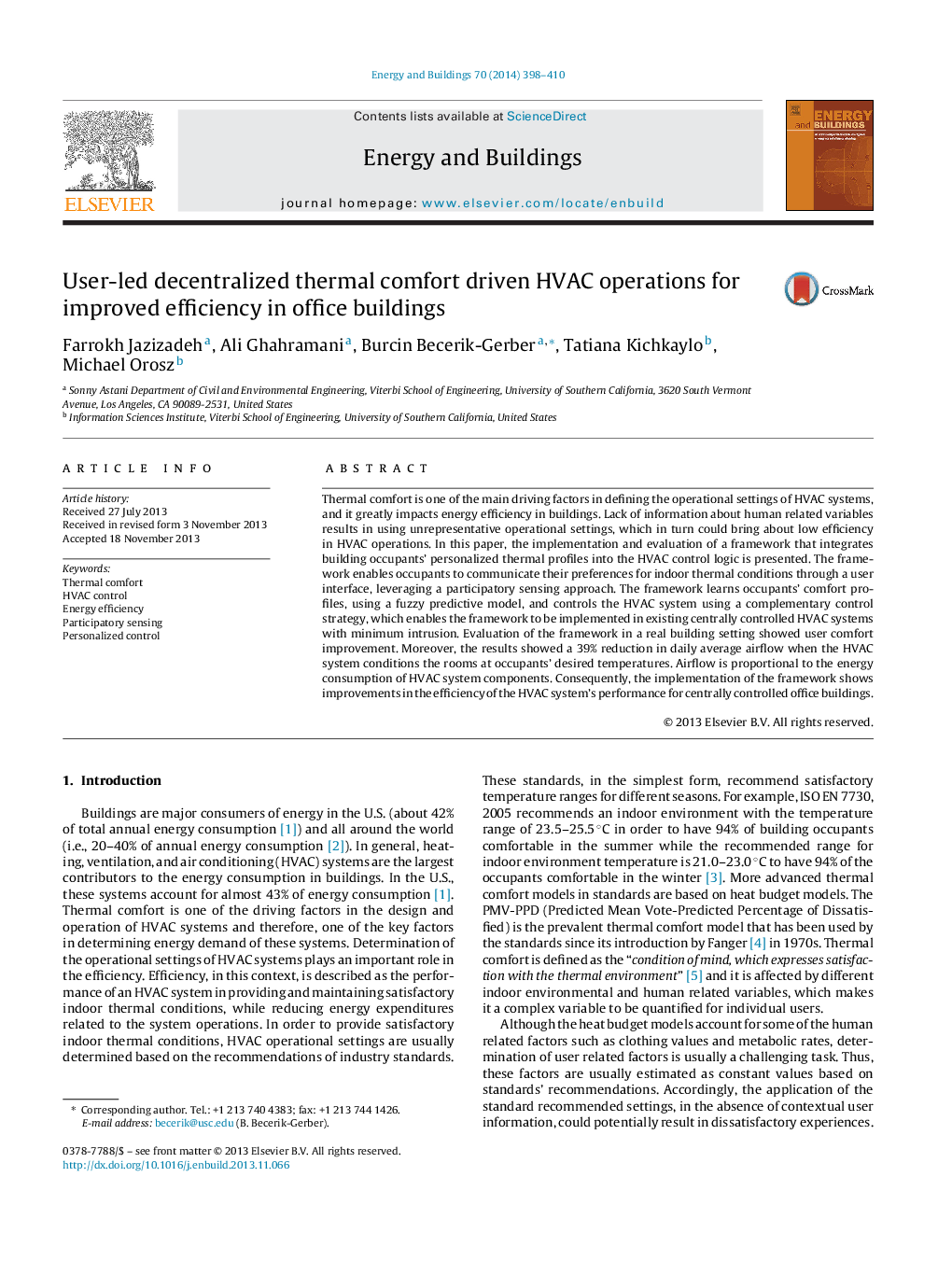| کد مقاله | کد نشریه | سال انتشار | مقاله انگلیسی | نسخه تمام متن |
|---|---|---|---|---|
| 263082 | 504063 | 2014 | 13 صفحه PDF | دانلود رایگان |

• We proposed a framework that learns building occupants thermal comfort profiles.
• A decentralized control strategy conditions environments based on comfort profiles.
• The framework could be integrated to existing buildings with minimum intrusion.
• Validated the framework's performance in an office building.
• Achieved considerable improvements in occupants’ satisfaction and energy use.
Thermal comfort is one of the main driving factors in defining the operational settings of HVAC systems, and it greatly impacts energy efficiency in buildings. Lack of information about human related variables results in using unrepresentative operational settings, which in turn could bring about low efficiency in HVAC operations. In this paper, the implementation and evaluation of a framework that integrates building occupants’ personalized thermal profiles into the HVAC control logic is presented. The framework enables occupants to communicate their preferences for indoor thermal conditions through a user interface, leveraging a participatory sensing approach. The framework learns occupants’ comfort profiles, using a fuzzy predictive model, and controls the HVAC system using a complementary control strategy, which enables the framework to be implemented in existing centrally controlled HVAC systems with minimum intrusion. Evaluation of the framework in a real building setting showed user comfort improvement. Moreover, the results showed a 39% reduction in daily average airflow when the HVAC system conditions the rooms at occupants’ desired temperatures. Airflow is proportional to the energy consumption of HVAC system components. Consequently, the implementation of the framework shows improvements in the efficiency of the HVAC system's performance for centrally controlled office buildings.
Journal: Energy and Buildings - Volume 70, February 2014, Pages 398–410